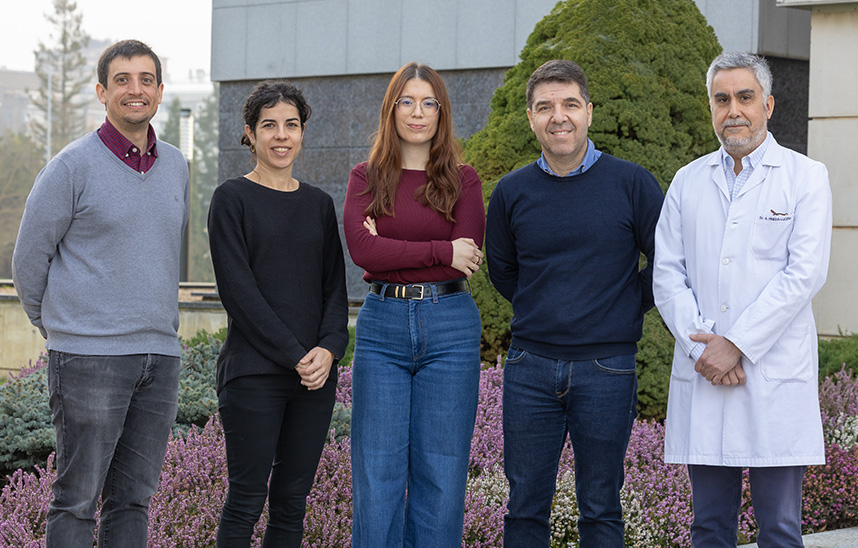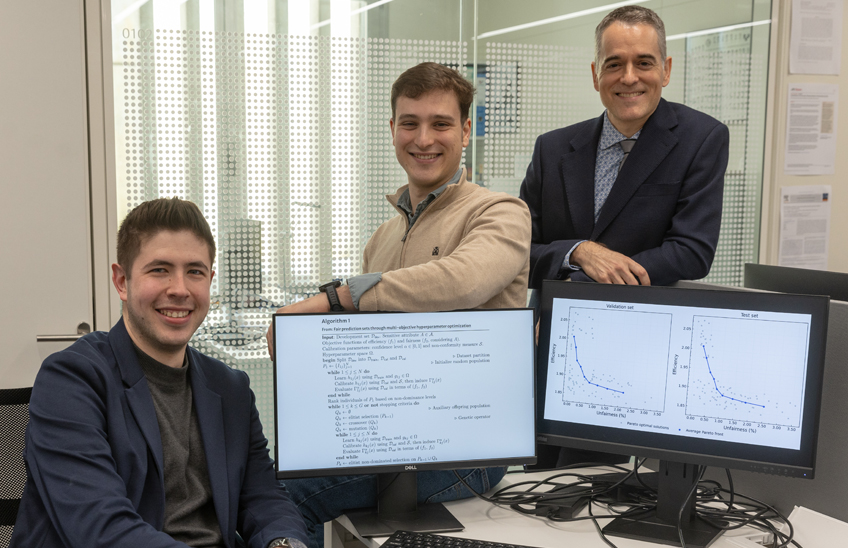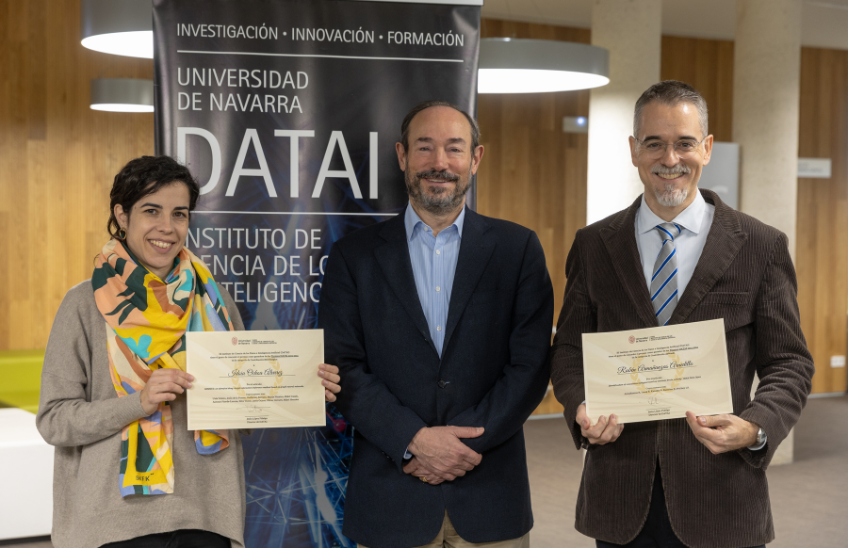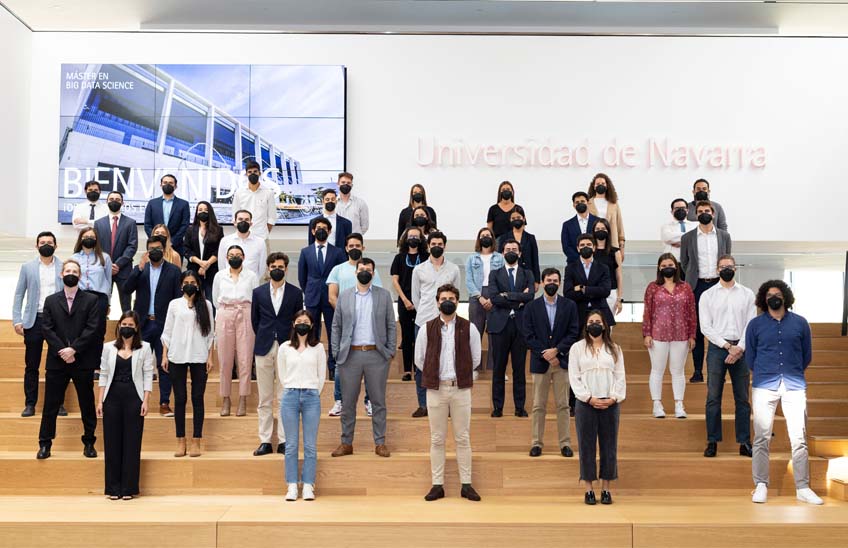Rubén Armañanzas: "Algorithms are not a risk in themselves but the risk lies in the uses that humans can make of them".
Artificial intelligence experts Idoia Ochoa and Rubén Armañanzas discussed the challenges posed by AI at the University's Alumni Meeting Gipuzkoa.

Ninety alumni met on Thursday, March 14 for the second quotation of the Alumni Meetings in Gipuzkoa. Idoia Ochoa (TECNUN'08), professor at Tecnun, and Rubén Armañanzas, from the Institute of Science of the data and Artificial Intelligence, reflected on artificial intelligence and its challenges for society.
Nagore Gil (COM'99), director of communication of Tecnun, and Íñigo Gutiérrez (TECNUN'98 | PHD'04), director of Alumni, welcomed the attendees to the event. The presenter then invited the speakers to the stage to start the session under the title degree scroll "New ethical and technological challenges in AI".
The conversation started by making reference letter to the recent Artificial Intelligence Law approved by the European Parliament on Wednesday, March 13. According to Professor Idoia Ochoa (TECNUN'08) there may be cases in which Artificial Intelligence is abused, so in her opinion, "having a legal framework that delimits its use is an opportunity to select those areas in which to work and improve the systems".
Rubén Armañanzas took the opportunity to clarify the concept of "Artificial Intelligence", since it is not always explained to users what it means. The researcher highlighted that AI refers to "the simulation of cognitive and learning processes in a non-biological system". Idoia Ochoa pointed out that "much of this learning has taken place thanks to the powerful availability of online content that has been created on the Internet over the years".
During the session, the speakers reflected on some areas of use of AI today, such as digital medicine or its implementation in finance for evaluation investments. However, Rubén Armañanzas warned that "the limit of artificial intelligence and technology must go as far as where both tools are beneficial to humans". Professor Ochoa gave an example of a case of the use of AI to assess the recidivism of people to commit crimes, in which, due to a bias in the algorithm, the results were detrimental to people with specific characteristics. Finally, both agreed on the importance of training society in artificial intelligence both at research and Username.
To close the roundtable, during the question and answer session, the attendees were interested in the ethical implications of AI. topic Rubén Armañanzas, Rubén Armañanzas, pointed out that "algorithms are not a risk in themselves, but the risk lies in the uses that humans can make of them".
At the end, the attendees enjoyed a cocktail where they could talk with the speakers. In addition, this allowed the reunion and networking of alumni of the University.
This is how the event went
Alumni Meetings: next stop
On April 25, the Alumni Meetings will travel to Zaragoza to talk about the meaning of work with Ricardo Piñero, Full Professor at the University of Navarra. With these events, the University aims to generate a space for meeting and dialogue with alumni in which they can expand their networking network and their professional development and staff.





